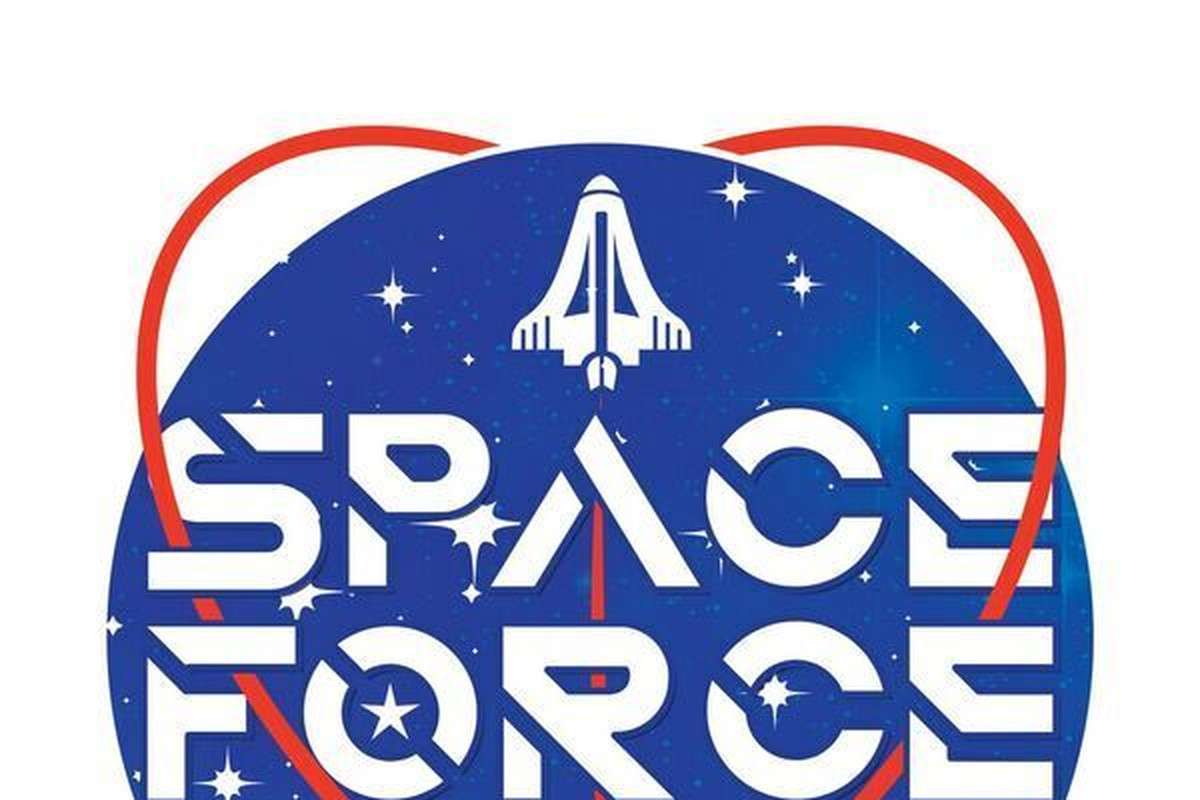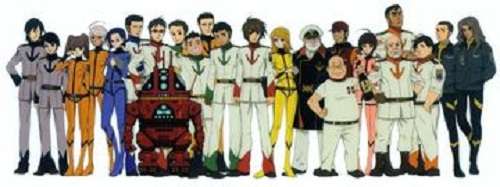The Volokh Conspiracy
Mostly law professors | Sometimes contrarian | Often libertarian | Always independent
Originalism's Final Frontier: Is Trump's Proposed Space Force Constitutional?
The issue was recently raised by legal scholar Michael Dorf, and goes back to earlier debates about whether originalism implies that the Air Force is unconstitutional.

President Trump recently proposed the establishment of a new branch of the armed forces: the Space Force. And it's going to be a "separate but equal" force, according to the President. By that, - hopefully - he means that it will be separate from the Army, Navy, and Air Force, rather than racially segregated. Many experts have questioned the wisdom of establishing a Space Force. But Cornell law Professor Michael Dorf raises the issue of whether it is even constitutional, at least from standpoint of originalism. He does so in the context of a longstanding debate over whether the Air Force is permissible under an originalist interpretation of the scope of federal power.
As with the debate over the Air Force (an issue raised mainly by academic critics of originalism), the point of Dorf's post is less to criticize the Space Force (though he is actually no fan of the idea) than to attack originalism. If originalism would forbid the establishment of military services that seem vital to national security, that may be a good reason to reject the theory. Dorf analyzes a brief 2007 post in which I addressed the Air Force issue and offered two reasons why an air force can be compatible with originalism. Here's what I said:
One argument that is often made against originalist and textualist approaches to constitutional interpretation is the claim that they would render the Air Force unconstitutional. Article I, Section 8 of the Constitution seems to give Congress the authority to creat an Army and Navy, but not an Air Force. It grants Congress the following relevant powers:
To raise and support Armies …..;
To provide and maintain a Navy;
To make Rules for the Government and Regulation of the land and naval Forces;
Citing this text, critics of textualism and originalism claim that the Air Force must be considered unconstitutional under these theories of interpretation. I think there are at least two compelling answers to this claim:
1. At most, the argument suggests that it is unconstitutional to have an independent air force. But air forces that are part of the Army and Navy are surely permissible. That is in fact the arrangement we had during WWII, and could go back to again. The mere fact that planes are a new technology that flies through the air surely does not forbid their use by the military, even under a very narrow view of textualism. Planes that fly through the air are no more constitutionally problematic than bullets that fly through the air, or balloons (whose military use was contemplated even at the time of the Founding).
2. Even an independent air force could potentially be justified by the Necessary and Proper Clause. If, under modern conditions, it really is militarily important to have an independent air service…., then the creation of an independent air force is "necessary" to the implementation of Congress' other Article I powers even in the narrow sense of the word, and is also "proper" in the sense that it doesn't seem to infringe on federalism or on other aspects of the constitutional structure.
I think these points apply to a Space Force in much the same way as the Air Force.
Dorf writes that these arguments are "pretty good" and notes that he "do[esn't] think the Air (or Space) Force problem fatally undercuts originalism." But he also argues that the Air Force/Space Force issue "is not quite as easy to dismiss as one might think" because "the analytical moves needed to do so render originalism indistinguishable from living Constitutionalism and other nonoriginalist approaches." In particular, he argues that the Necessary and Proper Clause rationale for the Air Force (or Space Force) requires deviation from the text of the Constitution, which - if allowed - would justify lots of other deviations, including many advocated by living constitutionalists:
[T]here's a potential problem with using the N&P Clause this way that's rooted in [Chief Justice] Roberts's opinion in NFIB v. Sebelius. He argues there, based on language in McCulloch v. Maryland, that certain "great substantive and independent powers" can only be granted in terms, not by implication from the N&P Clause. Neither John Marshall in McCulloch nor John Roberts in NFIB provides much guidance as to how exactly one is supposed to go about determining which powers fall within this category, but one textually-minded way of thinking about it would be to take cues from the language of the Constitution itself.
If the framers and ratifiers had thought that the need for support from one type of military force was sufficient to make that force fall within the scope of a N&P inference, then they would not have needed to provide for the power to create both "armies" and "naval forces." After all, "naval forces" will often be necessary (and thus, a fortiori, "necessary and proper") to transport armies by water or to provide protection for land forces against an attack from the sea. So the enumeration of both categories of forces tends to rule out an inference of other kinds of forces via the N&P Clause--at least if one accepts the "great substantive and independent powers" line drawn by the Chief Justice in Sebelius.
Notice that this critique is entirely focused on my second argument (the one based on the Necessary and Proper Clause). It doesn't address my first point: that an Air Force - or, today, a Space Force - is perfectly constitutional so long as it is part of the Army or the Navy. That structure is compatible with a great deal of institutional autonomy for the Space Force, as is true of the Marines today (which are part of the Department of the Navy, but nonetheless enjoy considerable autonomy) and was also true of the Army Air Force during World War II (before it became a fully independent Air Force in 1948). Indeed, as Dorf suggests, limited autonomy might well be superior to full autonomy, because modern military operations require strong interservice cooperation, which can be impeded by interservice rivalries. That is one of the reasons why the armed forces have, over time, moved towards greater integration.
Regardless, this sort of structure avoids the nightmare scenario of forbidding the establishment of of essential military forces, and thus neutralizes this potential criticism of originalism. And it does so without stretching the text or opening the door to living constitutionalism. Even if the Necessary and Proper Clause does not allow the creation of a fully independent Air Force or Space Force, we can get most of the same benefits by other means.
But I think Dorf's critique also fails when it comes to the Necessary and Proper Clause argument itself. If I am right that the power to establish an army and navy gives Congress the authority to create partly autonomous air and/or space forces lodged within those services, then the establishment of a fully independent air force or space force would not be a a "great substantive and independent power," but merely imposing a new form of bureaucratic organization on a military force that Congress already has the power to create elsewhere. While Chief Justice Roberts' NFIB v. Sebelius opinion argues (correctly, in my view) that the use of a "great and independent power" would not be "proper" even if "necessary," the same does not apply to a minor power ancillary to authority Congress already has under one of its other enumerated powers. I discuss NFIB and the meaning of "proper" in greater detail in this article.
Dorf's best point is the possibility that the Necessary and Proper Clause argument renders the power to establish a navy superfluous, since naval forces are surely often "necessary" for the support of land forces. But, in the 18th century context, naval forces of an oceanic seapower like the United States often operated at a vast distance away from any of the country's land forces, with no ability to quickly communicate or cooperate with ground units. Thus, much of the Navy in that era had little plausible connection to the Army. In an age of electronic communications and fast airlift, by contrast, US naval forces are in constant communication with other branches of the service and each can call on the other at short notice (and routinely do). The same point would apply to a Space Force (at least one focused primarily on operations in earth orbit, primarily intended to support satellites used by intelligence agencies, other branches of the armed forces, and the like).
There are plenty of serious objections to originalism. But originalists need not worry too much about the Air Force issue - or the Space Force.
The fact that Trump's Space Force may be constitutional does not, of course, mean that it is a good idea. I am very skeptical that it is. On the other hand, I would be happy to see the return of the "Star Blazers" Star Force, which was my favorite armed force back when I was in elementary school. The Star Force's wave motion gun could truly make space warfare great again!



Show Comments (124)